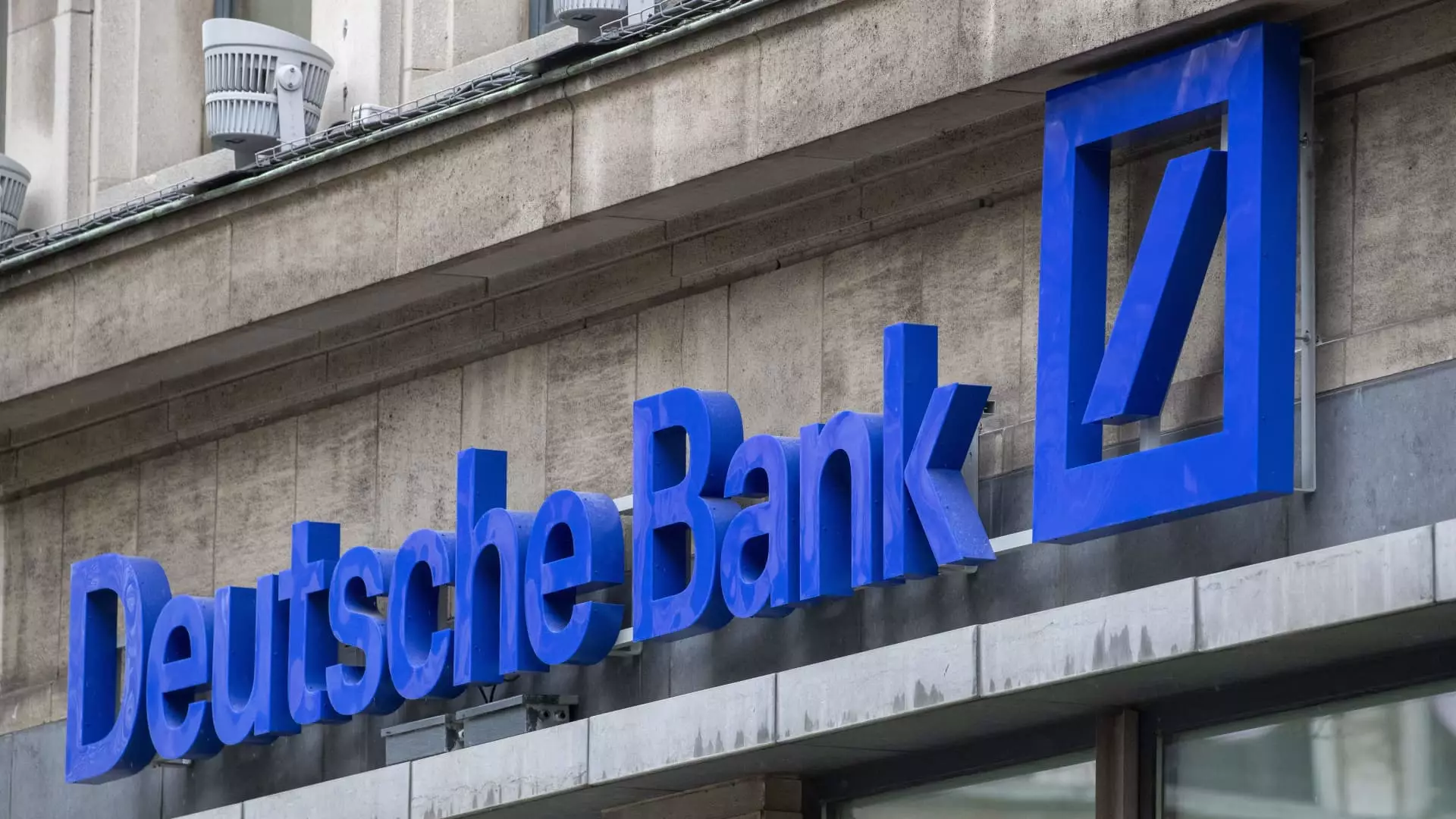In an era where financial institutions are often defined by their vulnerability to geopolitical shocks and volatile markets, Deutsche Bank has managed to defy expectations with a surprisingly robust performance. Despite the unpredictable currents of the global economy and the specific headwinds facing European banks, Deutsche Bank’s latest quarterly results suggest a resilience rooted in strategic adaptation and disciplined risk management. However, beneath the surface of these headline figures lies a complex landscape of mixed results, critical challenges, and the uncertain road ahead that demands a centered, pragmatic approach.
While the bank reported a profit attributable to shareholders of 1.485 billion euros—comfortably exceeding analyst forecasts—these numbers should be scrutinized with caution. The increase is partly attributable to a one-time easing of legal provisions from past acquisitions rather than a sign of sustainable growth. The bank’s core profitability metrics, such as return on tangible equity of 10.1%, reveal margins that are still below desired levels, especially in a competitive environment where European banks face the challenge of a suppressed interest rate environment. It’s all too easy to celebrate the headline profit, but a rigorous analysis uncovers vulnerabilities in how Deutsche Bank is positioning itself for longer-term competitiveness.
Investment Banking: A Tale of Diverging Fortunes
The bank’s investment banking division presents a nuanced picture. Revenues edged up by 3% year-on-year—indicating some resilience—yet a deeper dive exposes underlying fragility. Fixed income and currencies reported strong gains driven by interest income and market volatility, which often reflect temporary conditions. The decline in origination and advisory revenues by 29%, amid market uncertainty, highlights a fundamental weakness: Deutsche Bank’s ability to generate consistent, stable fees in a highly competitive and unpredictable environment.
This divergence within its core banking units underscores a broader issue facing European lenders. They are caught between the necessity of capitalizing on volatile trading conditions and the reluctance or inability to lead large-scale debt or mergers advisories when market conditions are uncertain. It is a reflection of the Eurozone’s lingering economic fragility—where political tensions, trade uncertainty, and subdued interest rates inhibit growth. For a bank like Deutsche, this means a delicate balancing act, emphasizing the importance of diversification and strategic foresight rather than relying solely on short-term market movements.
European Political and Economic Headwinds: The Elephant in the Room
Deutsche Bank’s prospects are inherently intertwined with the broader European economic landscape, which remains riddled with uncertainty. The renewed focus on defense spending offers a glimmer of opportunity, yet the economic and political instability sow doubts about the future. The unfolding trade negotiations between the EU and the U.S., particularly around tariffs and trade barriers, threaten to dampen Germany’s export-driven economy.
German politics have stabilized with a new coalition government, but economic policy limbo persists. The specter of a potential recession looms if trade tensions escalate, and the ECB’s continued low-interest-rate policy suppresses banks’ net interest margins. Deutsche Bank’s CEO Christian Sewing’s acknowledgment of “underinvestment” in Europe underscores a pragmatic recognition that the banking sector must adapt to these subdued conditions—an imperative to stay afloat rather than thrive.
This scenario calls for a balanced, strategically cautious approach that recognizes European economic vulnerabilities while seeking pockets of opportunity—whether in defense-related markets or wealth management. The bank’s ability to navigate these headwinds will determine its long-term vitality.
Deutsche Bank’s current financial trajectory reveals a bank that is neither failing nor flourishing outright, but one that operates in a complex, high-stakes environment requiring prudence and strategic focus. From a center-right liberal perspective, the emphasis should be on fostering stability, encouraging responsible risk-taking, and supporting policies that bolster European industry without over-reliance on interventionist measures.
The bank’s cautious optimism about its full-year targets reflects confidence in internal restructuring and adaptive resilience. However, true strength will be demonstrated by its ability to diversify revenue streams, manage geopolitical risks effectively, and capitalize on selective opportunities—particularly in defense and wealth management. Policymakers and industry leaders must recognize that stability and growth in European banking hinge on prudent regulation and sound economic policies that prioritize long-term sustainability over short-term gains.
Deutsche Bank’s journey underscores a fundamental truth: in turbulent times, resilience is not merely about weathering storms but navigating them with prudence and strategic purpose. Its future depends on consistent innovation, disciplined risk management, and a pragmatic outlook—traits that, in the current climate, are invaluable.

